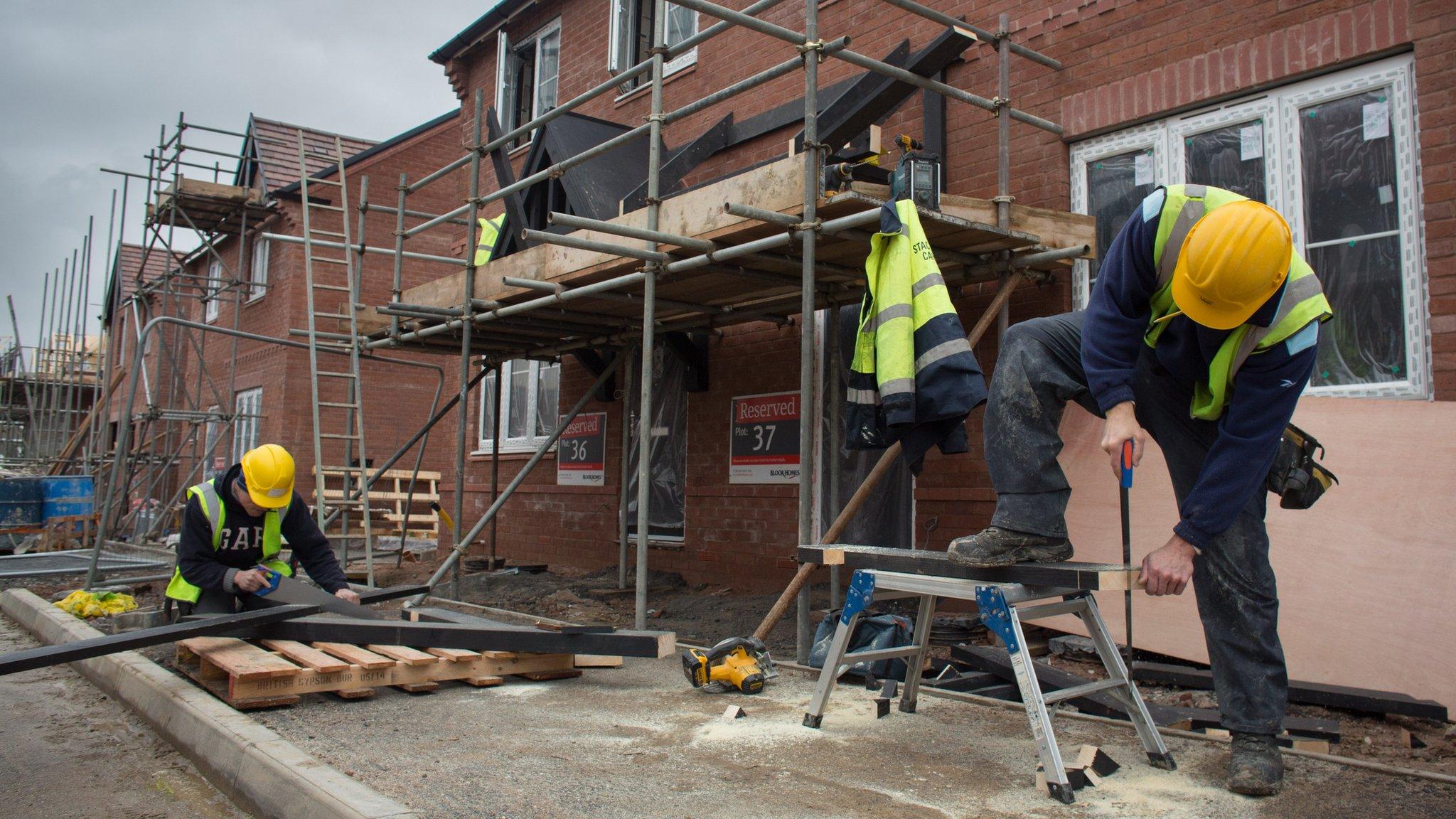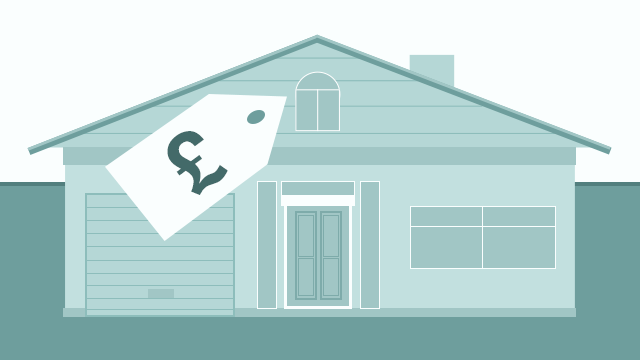Borrow more to boost building, says Sajid Javid
- Published
Communities Secretary Sajid Javid: 'We are looking at new investments'
The government should borrow money to fund the building of hundreds of thousands of new homes, a cabinet minister says.
Communities Secretary Sajid Javid said taking advantage of record-low interest rates "can be the right thing if done sensibly".
Housing charity Shelter said his comments suggested the government was "going in the right direction".
Labour said spending on new affordable homes had been "slashed" since 2010.
It comes as Mr Javid launched an eight-week review of housing, in which he has called on the industry to offer solutions to the home-buying and selling process.
The government has admitted house-building in the UK is failing to keep up with demand, and has described the current market as "broken".
Speaking on the BBC's Andrew Marr show, Mr Javid said successive governments had failed to build enough homes, and that the housing crisis Britain faced was "the biggest barrier to social progress in our country today".
Want to buy a house? Under 25? Watch this
He said between 275,000 and 300,000 homes a year - a level of house-building not seen since the 1960s - were needed in England alone to help tackle the shortage in affordable housing.
"We are looking at new investments and there will be announcements," he said, saying these would come in next month's Budget.
Asked about the change in tone from the Tories' previous approach to borrowing, Mr Javid said a distinction should be drawn between "vitally important" deficit reduction and "investing for the future" in housing and infrastructure.
"So for example... you borrow more to invest in the infrastructure that leads to more housing - take advantage of some of the record-low interest rates that we have. I think we should absolutely be considering that," he said.

What's changed?
Analysis by BBC political correspondent Jonathan Blake

Not so long ago, ministers would repeat at every opportunity the need to "balance the books".
Austerity was necessary to cut the deficit - to eliminate the gap between the amount the government spent and how much it received through taxes.
Now though, a cabinet minister openly suggests borrowing more money to fund a major policy.
So what's changed?
The economic impact of the Brexit vote means the chancellor's catchphrase is the politically more convenient but far less catchy "commitment to fiscal discipline".
Not unlike Labour's "fiscal credibility rule", the Conservatives now seem comfortable with borrowing large amounts to fund long-term investment projects.
The government will be hoping that as well as new homes, it will get support from voters in return.

Recent announcements by the government include a pledge by Theresa May at the Conservative Party conference this month of an extra £2bn to build an additional 25,000 social homes.
Earlier this year, the government unveiled a new housing strategy, external for England, which included giving councils powers to pressurise developers to start to build on land they own, and building more affordable homes to buy and rent.
And last month Mr Javid promised a "top-to-bottom review" of social housing in the UK.
'Hot air' on housing
Kate Webb, of Shelter, said: "What the government are now talking about is exactly what they should have been talking about all along."
At a time of low interest rates, borrowing for housing was a "good investment" for the government, she said, but the key would be the types of houses that are actually built.
These have to be affordable to, for example, a teaching assistant or a shop worker, she added.
Councillor Martin Tett, of the Local Government Association, called for councils to be given the power and funding to build houses.
Labour's housing spokesman John Healey said there had already been plenty of "hot air" from ministers on house-building.
"Any promise of new investment is welcome, but the reality is spending on new affordable homes has been slashed since 2010, so new affordable house-building is at a 24 year low."
He promised Labour would build 100,000 "genuinely affordable" homes per year.
- Published22 October 2017

- Published17 October 2017

- Published20 September 2017
